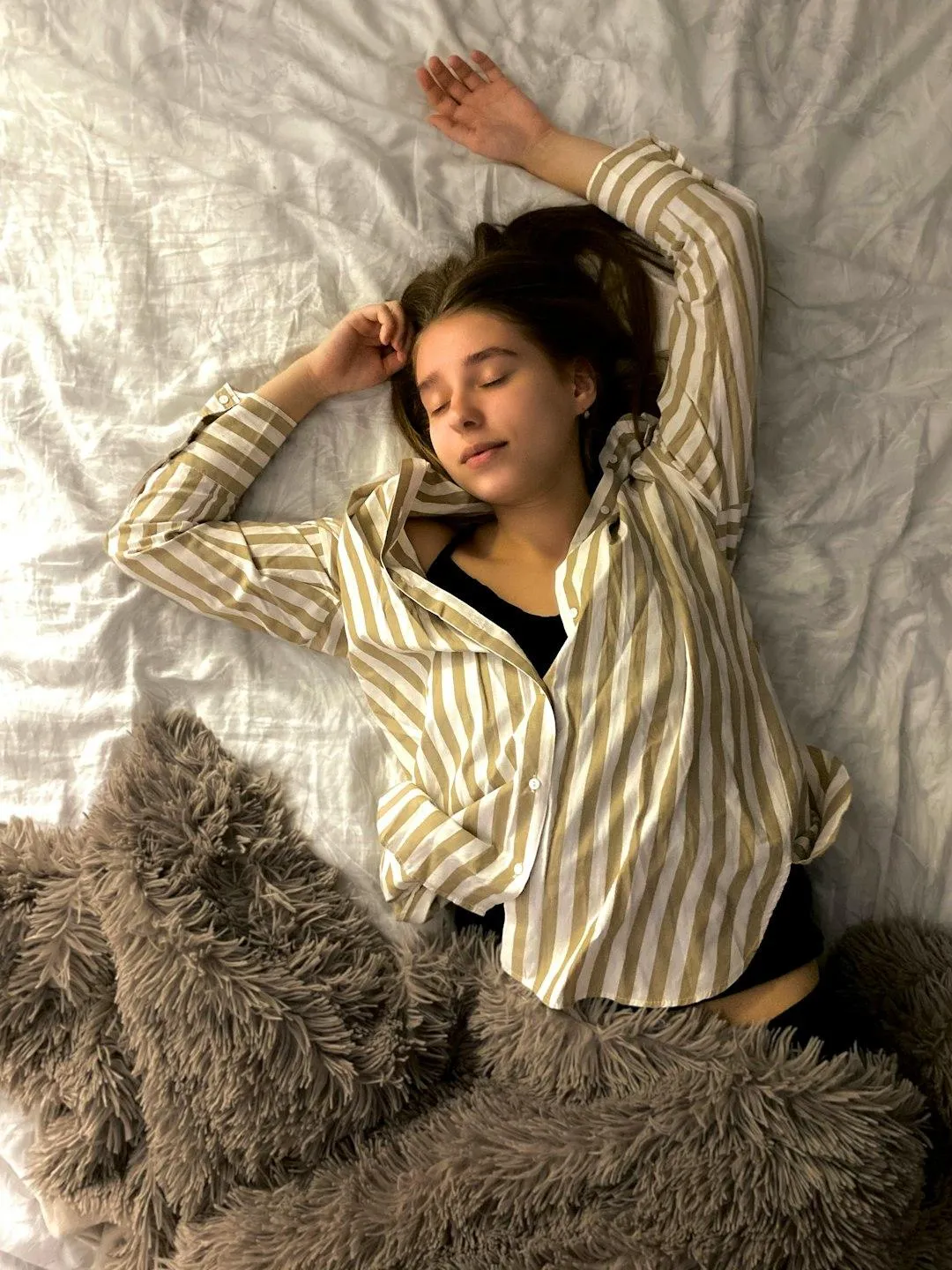
Why Good Sleep Matters More Than You Think for Teens’ Mental Health
Lately, I’ve been learning firsthand what happens when your body isn’t getting the deep, restorative sleep it needs.
For years, I've brushed off how much poor sleep was affecting my mental state. I struggled to focus, felt flat all the time, was very unmotivated and disconnected from the things that usually light me up.
It wasn’t until I noticed how hard it was to make clear decisions, manage stress, and show up for people I love that I realised just how big an impact a tired mind can have.
And if adults feel that way, imagine what it’s like for young people whose brains and bodies are still growing.

The Sleep Anxiety Loop
Teens and tweens need around 8-10 hours of sleep each night, but most don’t even come close.
Between late night scrolling, homework, social worries, and that natural teenage body clock shift (which makes them feel wide awake at 10pm), sleep often gets pushed to the bottom of the list.
But the thing is that lack of sleep doesn’t just make them tired.
It can:
Increase anxiety and irritability
Lower motivation and focus
Make small challenges feel overwhelming
Shrink emotional resilience
Erode confidence and self-worth
When the brain’s exhausted, it goes into survival mode. Everything feels bigger, scarier, and harder to handle.

Why Consistent Sleep Builds Confidence
Sleep helps regulate emotions, store memories, and strengthen the parts of the brain responsible for focus and problem solving.
When teens are rested, they’re better able to:
Cope with stress and self-doubt
Stay calm and grounded under pressure
See situations clearly instead of spiralling into “I can’t” thoughts
Feel motivated to take small steps toward their goals
In other words, good sleep builds emotional stability and self belief, two of the biggest protective factors against anxiety.

How Parents Can Help (Without a Fight)
It’s tricky because you can’t make a teen fall asleep but you can create the conditions for rest to feel easier and more appealing.
Here are a few gentle strategies that can help:
Lead by Example
Talk openly about your own sleep struggles or wins. It normalises the idea that everyone’s still learning how to look after their mind and body and that it changes with the different stages of life we are in.
Set a Consistent Rhythm, Not a Strict Rule
Instead of “you need to be asleep by 9,” try co-creating a routine e.g. dim lights, quiet space, device free time before bed. Make it about calm, not control.
Swap “Switch Off” for “Wind Down”
Saying “get off your phone” rarely works. Instead, encourage something relaxing like music, journalling, stretching, or just lying with the lights low.
Notice What Makes Sleep Hard
Is it anxiety, overthinking, or FOMO? Understanding the why helps you support the how.
Celebrate the Wins
Even one early night or a calmer evening routine is a step forward. Acknowledge that because it helps your teen feel capable and proud.

The Bigger Picture
When young people start sleeping better, everything else feels a little lighter.
Their mood lifts, their energy returns, and they’re more connected to themselves and others.
Sleep isn’t just rest it’s recovery for the mind, body, and self worth.
When Extra Support Can Help
Sometimes anxiety or overthinking makes switching off at night feel impossible.
Through 1:1 mentoring, I support young people who feel stuck in cycles of low energy, self-doubt, and overwhelm. Together, we work on calming their mind, rebuilding confidence, and helping them feel safe in their own skin again. If you’re curious to see if it’s the right fit, you can book a free 15 minute Connection Call with me. No pressure, just a friendly chat to see what it's all about.
Click here to book your free call.
Annabel 💛
